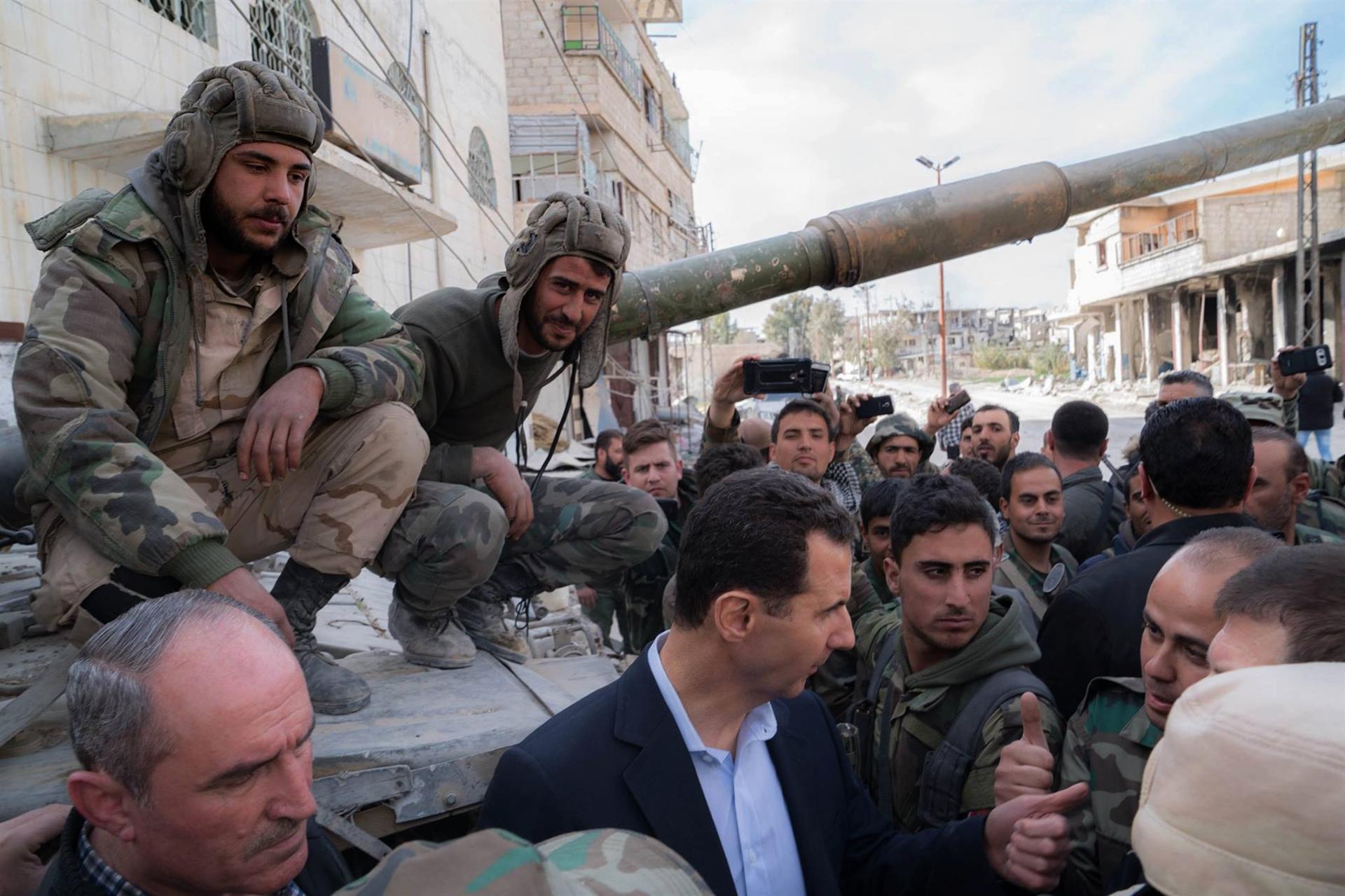Some rebels in Ghouta ‘may accept deals soon’
DAMASCUS

Some rebels in eastern Ghouta may soon agree to withdraw from the opposition enclave or accept rule by the Syrian state after big advances by the army into the area, a Syrian government minister said on March 19.
Syrian government forces have splintered eastern Ghouta into three separate zones in a month-long assault to crush the last major opposition stronghold near Damascus, confronting the rebels with their biggest defeat since 2016.
Damascus and its Russian allies are offering rebels in eastern Ghouta similar terms to those offered in other parts of the country that have been recaptured: safe passage out for those who agree to surrender territory, or a reconciliation agreement for those who wish to stay under government rule.
Ali Haidar, the Syrian minister responsible for such agreements, told Reuters in an interview that rebels in an enclave centred around the town of Harasta - one of three rebel pockets in eastern Ghouta - may be ready for such a deal.
Haidar said there were contacts with Ghouta rebels and “to a certain extent there are acceptable results in part of the file.”
“There may be an accomplishment in Harasta in the coming period. I don’t commit to specific timeframes because the matter is linked to the militants accepting departure or settling their situation [with the authorities] and the army entering the area,” Haidar said.
He said “what remains of Ghouta is, I believe, open to discussion ... to accomplish reconciliations at a certain level”.
Syrian President Bashar al-Assad paid on March 18 a first visit in years to battered East Ghouta to congratulate his troops for ousting rebels from near Damascus.
Syrian state television broadcast photos of the president dressed in a shirt and jacket surrounded by soldiers, some perched on a tank behind him, in an unspecified part of Eastern Ghouta.
Rebels have held out in Eastern Ghouta since 2012, but a regime assault in the last month has retaken more than 80 percent of the former opposition bastion.
“The inhabitants of Damascus are more than grateful and they will maybe tell their children in the coming decades how you saved the capital,” Assad told soldiers in a video released by his office.
















